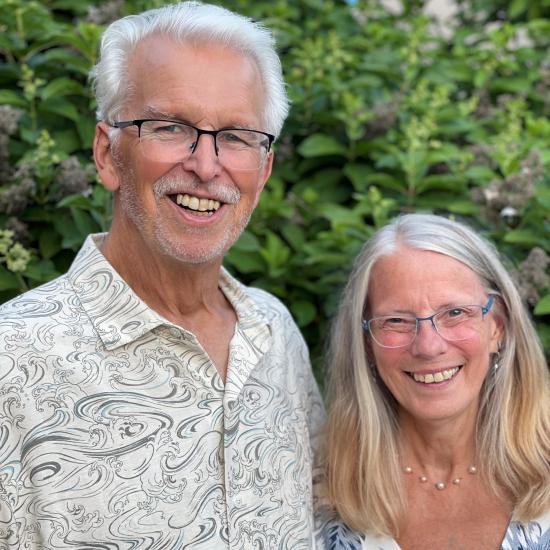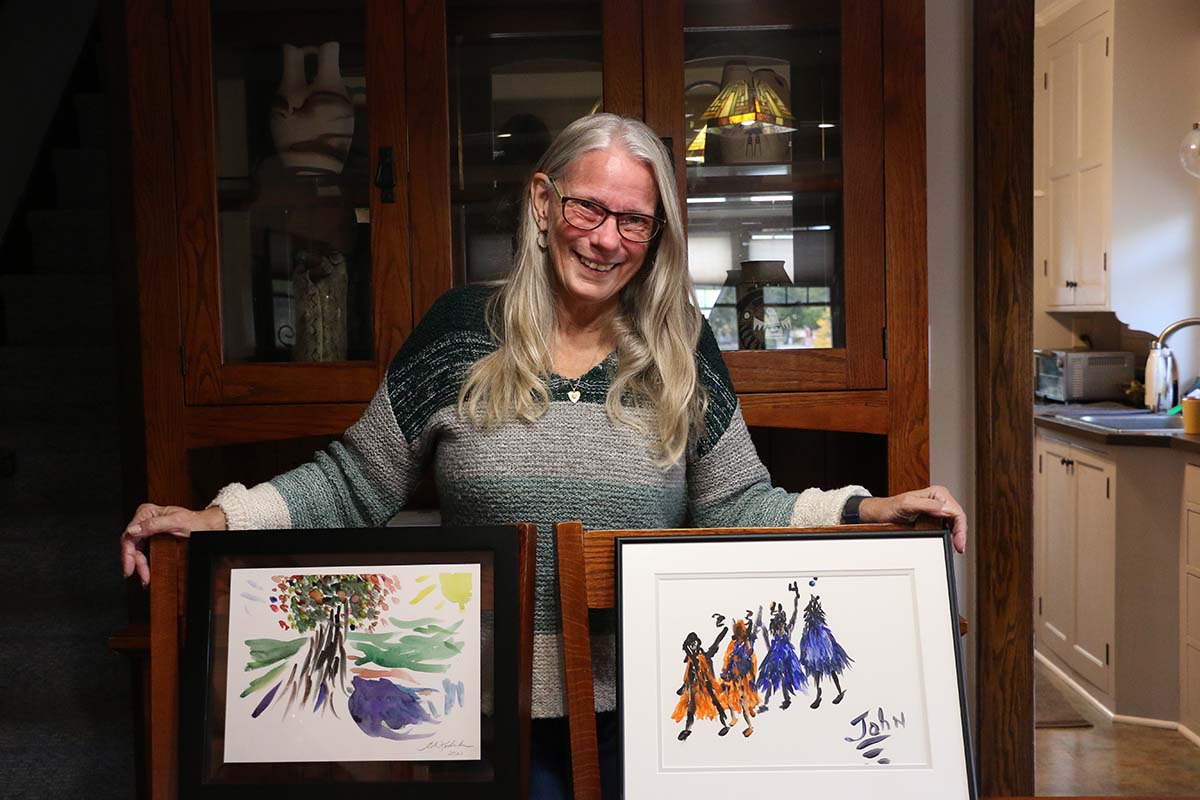Time to take care of herself
John, who died in January 2022, was a smart and witty man who worked as a labor negotiator and mediator. Because of his natural wit, he easily hid his dementia. By the time he was diagnosed with Alzheimer’s in 2020, it was clear that he couldn’t be left at home alone even for a short period of time.
But Chris still needed to do things like shop and attend to her own appointments.
Chris googled "respite care" and found Wilder. She enrolled John in care one day a week.
“It gave me a chance to get groceries or my hair cut,” Chris said. “It gave me some time for myself.”
It’s important for caregivers to take that time for themselves, says Christa Schwarting, a Wilder staff member. And Wilder is honored to provide a way for that to happen.
“Caregivers need a break. They want to run errands or to have lunch with friends. We provide a space where their loved one is having a good time and socializing and the caregiver can do whatever they want,” Schwarting says.
With time and commitment, John thrived with Wilder
At first, John insisted he didn’t need to be part of any day program. When Chris picked him up, he told her he had a terrible time. Staff, however, told her that he was participating in activities like singing. Although he had lost his short-term memory, John’s long-term memory gave him a boost during trivia games and Jeopardy. Staff said he seemed to be having a wonderful time.
Those contradictory messages aren’t uncommon, says Ellen Baker, a Wilder staff member.
“It’s not an easy transition for people. It can be a challenge for caregivers to get their loved one here, keep them here and get them happy,” Ellen says. “It took time and consistency and commitment, but John made friends.”
After a few months, staff even encouraged John to join the regular art therapy sessions. He told Chris how mad he was that they made him paint.
“He told me, ‘you know I’m not an artist. I can’t do that,” Chris said. “Then he’d show me what he had done and it was amazing. I actually framed many of his paintings.”
Support groups helped Chris through John's decline
John declined quickly, eventually losing the ability to swallow. As Chris watched the disease steal her husband, she joined Wilder’s support groups and training programs for caregivers. Here she received additional support and information that helped her become a better caregiver. She also needed more respite as he declined. In August of 2021, John started attending a second day per week, and in October, he added a third day.
In January 2022, Chris made the hard decision to move John into a memory unit at a long-term care facility. He died a month later.
Grief is hard, Chris says. But thanks to Wilder she’s able to lean into both the joys and sorrows that came with John’s diagnosis and death. Hanging in her living room is a painting that John made of trees with the sun in the background.
“Alzheimer’s robs you of so much. The staff at Wilder helped him be the best he could be. I’m grateful for that,” she says. “They were a lifeline when I needed it most. They were angels in disguise.”

